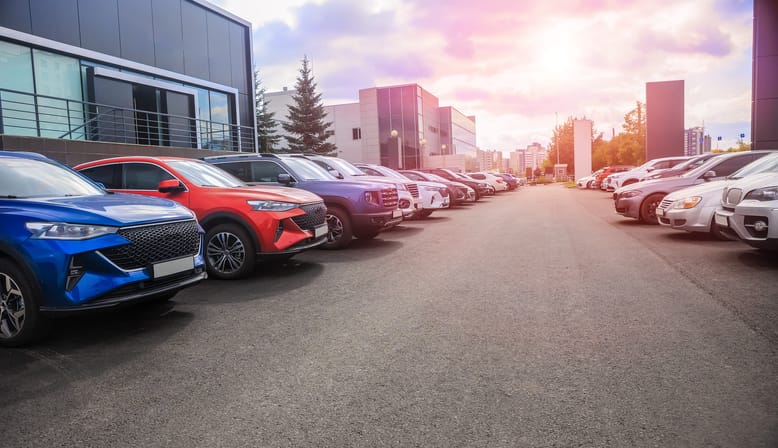The Best Cars for Businesses: Fuel Efficiency and Durability

When it comes to choosing vehicles for business use, two key factors rise above the rest: fuel efficiency and durability. Businesses rack up serious miles, and keeping those costs down while ensuring the vehicles stay on the road is crucial. This article explores the best car options for businesses, focusing on both fuel-efficient models and those known for their long-lasting reliability.
Fuel Efficiency Champions
- Hybrid and Plug-in Hybrid Electric Vehicles (PHEVs): For businesses with frequent stop-and-go driving, hybrids and PHEVs are unbeatable. These combine a traditional gasoline engine with an electric motor, offering exceptional fuel economy in city driving. The Toyota Prius remains a leader, boasting an impressive 58 mpg combined for the 2024 model year. The Hyundai Elantra Hybrid and Sonata Hybrid are strong contenders as well, delivering excellent fuel economy and a comfortable ride. PHEVs take it a step further, allowing for short commutes solely on electric power, further reducing reliance on gas stations. The Toyota Prius Prime offers an electric range of 57 miles, making it ideal for businesses with regional sales representatives.
- Compact Sedans: For businesses with a need for fuel-efficient yet practical vehicles, compact sedans are a fantastic choice. These lightweight cars excel in city driving and offer surprising cargo space. The Honda Civic, a perennial favorite, delivers a combined fuel economy of up to 36 mpg with its base engine. The Kia Forte and Hyundai Accent are strong competitors, offering similar fuel efficiency and a good balance of features and affordability.
- Small SUVs: While SUVs are typically known for lower fuel economy, some models have become surprisingly efficient. The Toyota Corolla Cross Hybrid achieves a stellar combined fuel economy of up to 43 mpg, making it a great option for businesses that need a bit more cargo space and occasional off-road capability. The Honda HR-V offers a comfortable ride and good fuel economy, making it a practical choice for businesses with a mix of highway and city driving.
Durability Dynamos
- Toyota Camry & Toyota Corolla: Toyota's reputation for reliability precedes it, and the Camry and Corolla are prime examples. Consistently ranked at the top of reliability surveys, these vehicles are known for lasting well over 200,000 miles with proper maintenance [J.D. Power]. Their combination of fuel efficiency, spacious interiors, and legendary durability makes them ideal choices for businesses with high mileage needs.
- Honda Accord & Honda Civic: Honda rivals Toyota in terms of reliability. The Accord, known for its comfort and refined driving experience, is a solid choice for businesses that require a well-rounded sedan [J.D. Power]. The Civic, a perennial favorite for its sporty handling and practicality, offers excellent value for businesses seeking a reliable and efficient workhorse.
- Ford F-Series: For businesses that require a heavy-duty truck, the Ford F-Series is a no-brainer. Consistently ranked at the top of truck reliability surveys, the F-Series offers a variety of configurations to suit diverse business needs, from hauling equipment to towing trailers [J.D. Power]. While fuel efficiency may not be its strong suit, the F-Series makes up for it in terms of durability and capability.
Beyond the Numbers: Choosing the Right Fit
While fuel efficiency and durability are crucial factors, other considerations are important when choosing business vehicles.
- Cargo and Passenger Capacity: Consider the typical number of passengers and cargo needs for your business. Compact sedans might be perfect for sales representatives, while service companies may need a spacious SUV.
- Safety Features: Prioritize vehicles with advanced safety features such as automatic emergency braking, lane departure warning, and blind-spot monitoring to ensure the well-being of your employees.
- Technology: Features like navigation, smartphone integration, and Wi-Fi hotspots can improve productivity for employees on the go.
- Total Cost of Ownership (TCO): Look beyond the initial purchase price and consider factors like maintenance costs, fuel efficiency, and resale value when determining the overall cost of ownership.
Making an Informed Decision
By carefully evaluating your business needs and considering factors beyond just fuel efficiency and durability, you can choose vehicles that are not only cost-effective but also safe, practical, and contribute to employee satisfaction. Researching reviews from reputable sources like Consumer Reports or Kelley Blue Book can provide valuable insights into specific models. Consulting with fleet management companies can also be helpful, especially for businesses with large vehicle needs.
Remember, the best car for your business is the one that strikes the perfect balance between fuel efficiency, durability, practicality, and overall value.
